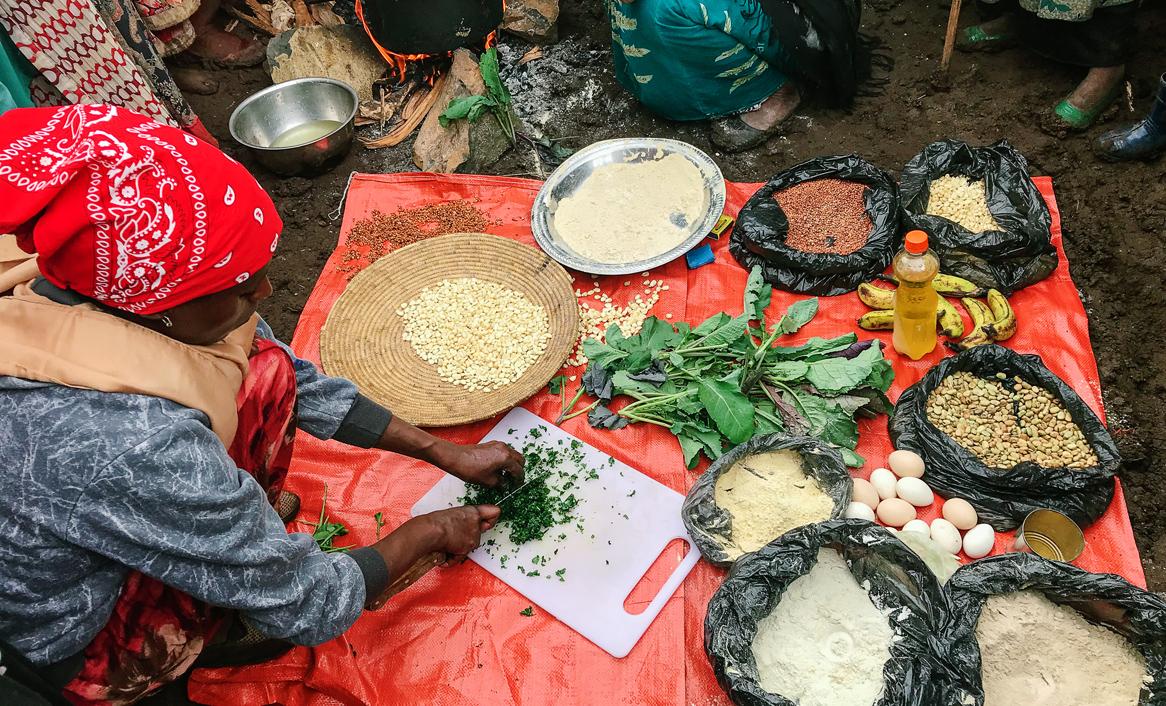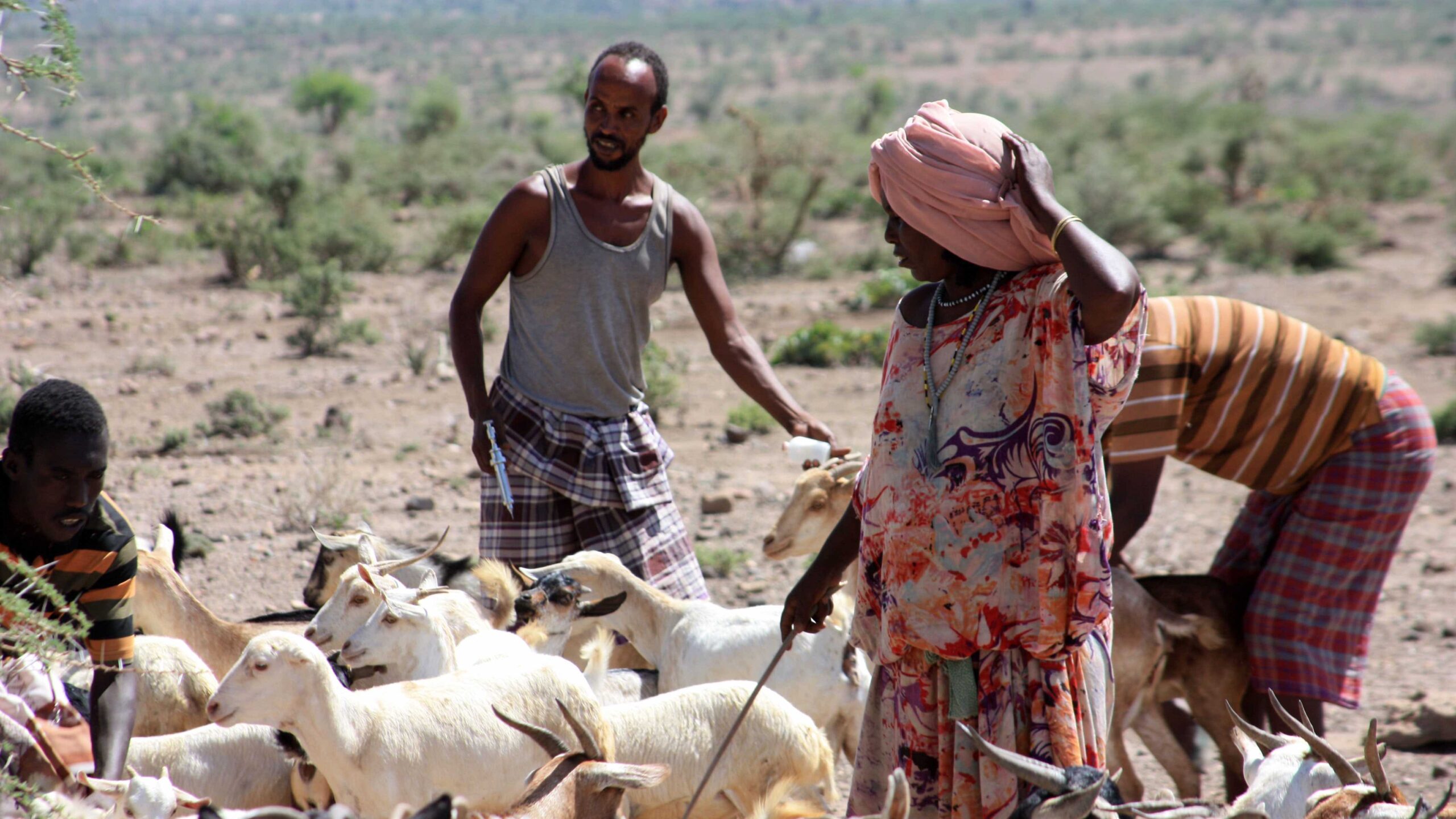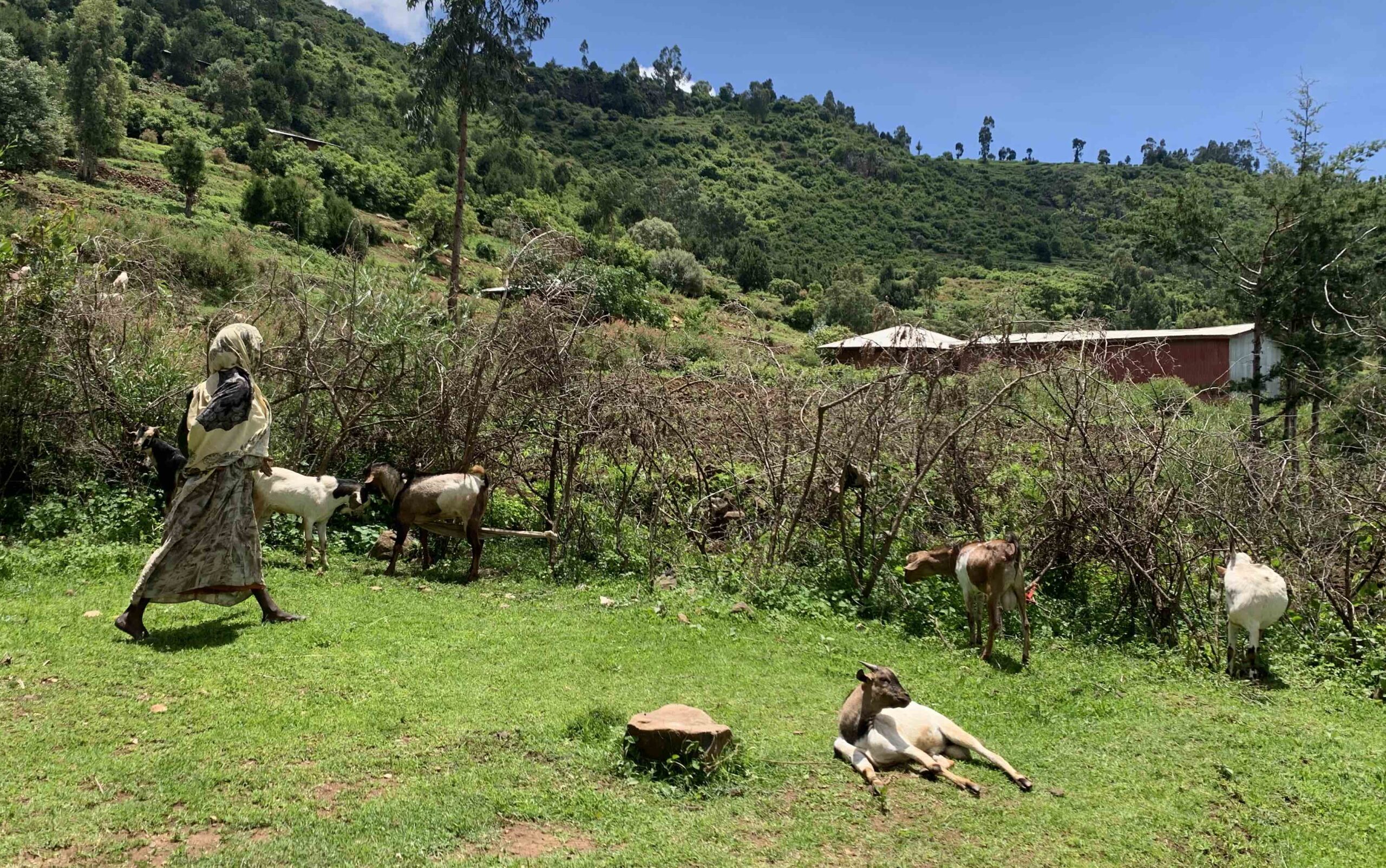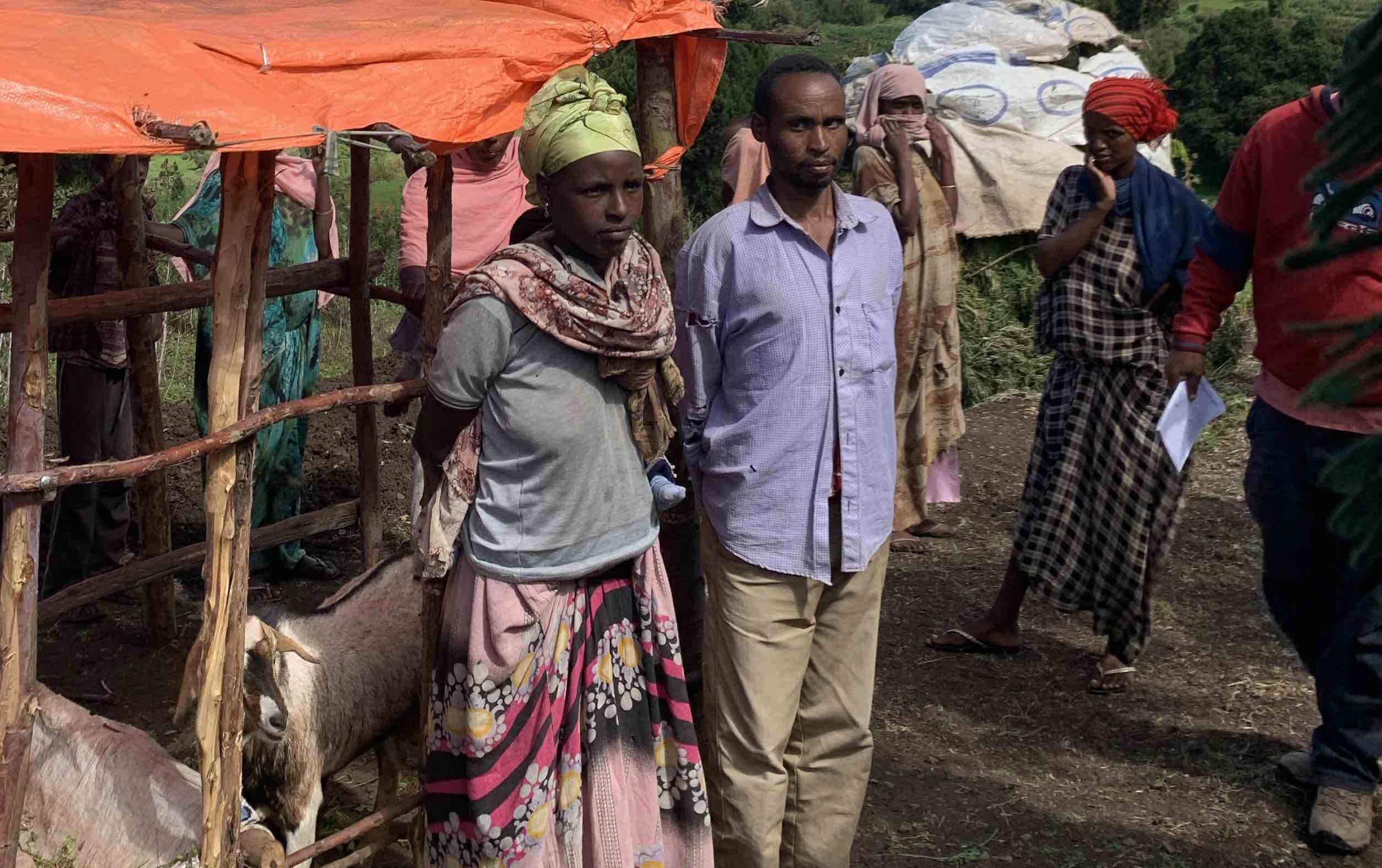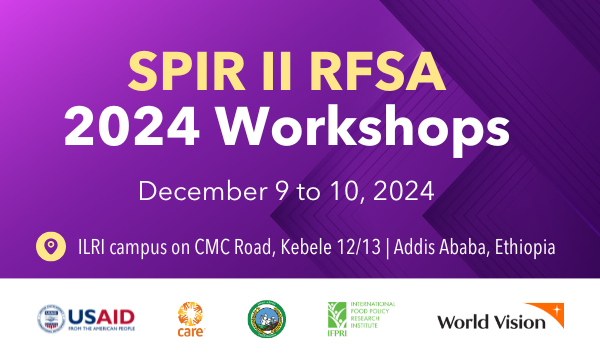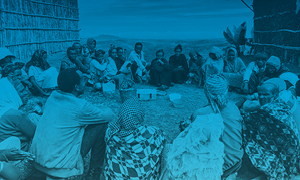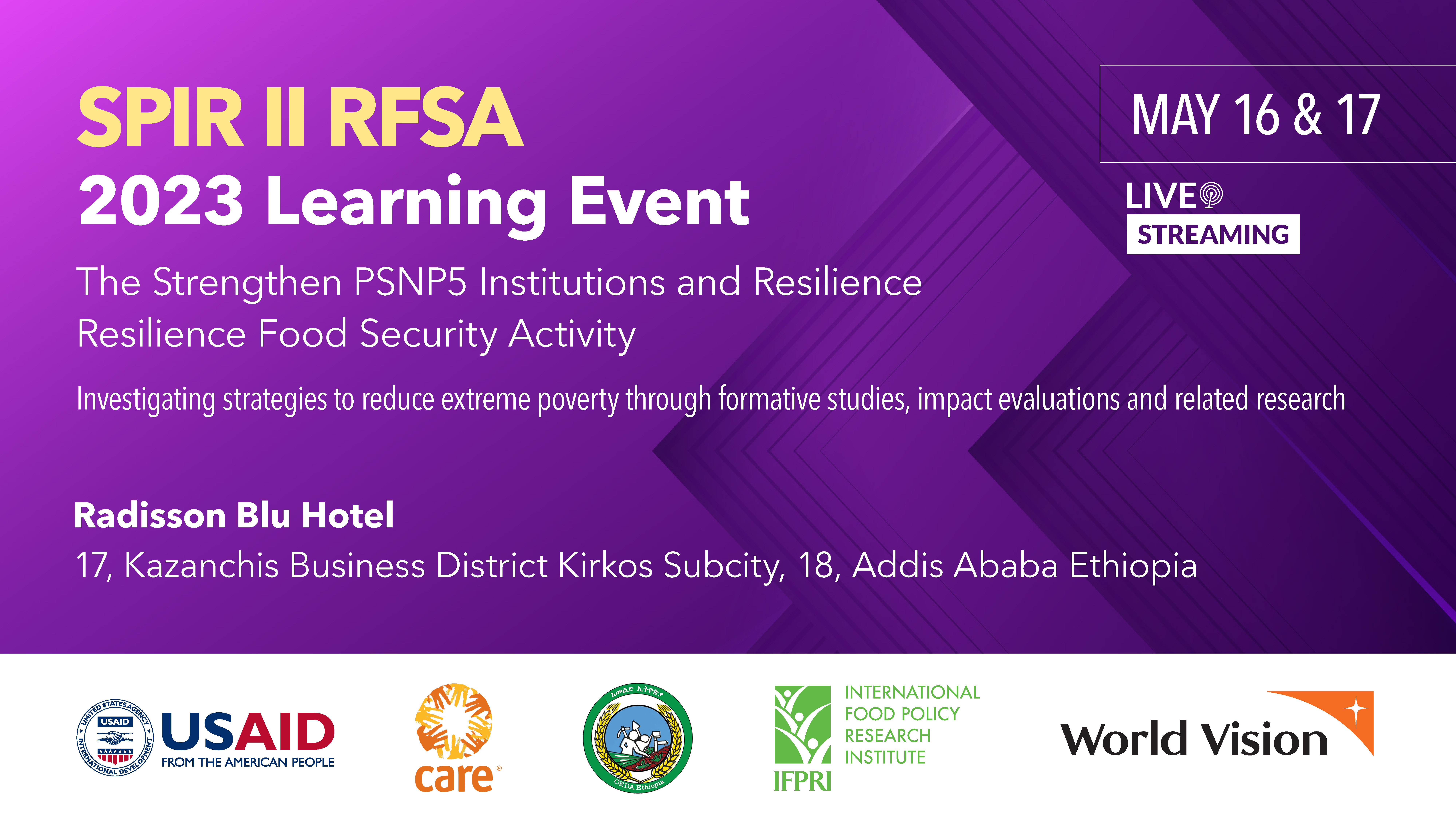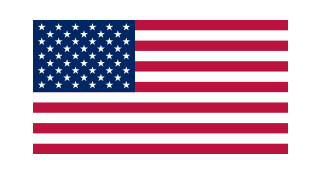USAID’s Bureau for Humanitarian Assistance supports the Government of Ethiopia to deliver the Productive Safety Net Programme (PSNP), a social protection program established in 2005 that targets the poorest households in Ethiopia with the provision of cash or food in exchange for labor on public works projects or as free cash or food transfers for those physically unable to work. USAID funded projects deliver the PSNP in select regions of Ethiopia providing cash and food assistance to PSNP targeted households along with additional graduation model programming through complementary gender-sensitive livelihood, nutrition, and climate resilience activities.
Phase 1: The Strengthen PSNP4 Institutions and Resilience (SPIR) Development Food Security Activity (DFSA), 2016 – 2021
The SPIR DFSA project, led by World Vision in partnership with Organization for Rehabilitation and Development in Amhara (ORDA), and CARE, implemented PSNP4 in select woredas of Amhara and Oromia regions from 2017 to 2021 supporting 150,000 PSNP targeted households. In addition to cash and food transfers, the SPIR DFSA project provided multifaceted programming on livelihoods, nutrition, gender equality, and natural resource management to address pervasive food insecurity and malnutrition.
Under the SPIR DFSA learning agenda IFPRI conducted a cluster randomized controlled trial (cRCT) with three treatment arms designed to measure the impact of different SPIR intervention packages against a comparison group that only received the basic PSNP transfers without any complementary programing. The study tested combinations of livelihoods and nutrition activity packages, some with enhanced components such as a one-time transfer of $200 in value, male engagement groups, or a mental health intervention targeting community members screened for depression. Data collection included three rounds of household panel data (n=3,314) collected at baseline (2018), midline (2019) and endline (2021). Research papers have estimated the impact of the SPIR program packages on livelihoods, child nutrition, women’s wellbeing, men’s gender equitable attitudes and behavior, resilience to climate shocks, and mental health outcomes (publications forthcoming).
Phase 2: The Strengthen PSNP5 Institutions and Resilience (SPIR II) Resilience Food Security Activity (RFSA), 2021 – 2026
World Vision leads implementation of the follow-on program, which is the SPIR II RFSA in partnership with ORDA, CARE and IFPRI. The SPIR II project implements the PSNP5 in 17 woredas in the Amhara and Oromia regions of Ethiopia and supports 169,182 PSNP targeted households.
IFPRI leads the SPIR II learning agenda in close collaboration with the implementation partners. The SPIR II learning agenda investigates strategies to reduce extreme poverty and address its causes through formative studies, impact evaluations, and related research.
SPIR II RFSA learning approach:
- Generate rapid evidence to inform the program design and implementation of the SPIR II RFSA
- Establish new evidence on the impact and cost effectiveness of specific project components.
- Build partnerships and strengthen the community of practice of Ethiopian-based researchers and institutions.
SPIR II RFSA learning agenda components:
- Six qualitative formative or pilot studies completed during the project refinement period (Sept. 2021 – Dec. 2022).
- Five large-sample experimental evaluation studies of SPIR II project components including mental health, infant and young child nutrition, secondary school enrollment, and sustainable land management practice interventions.
- Six independent studies conducted by Ethiopia-based researchers funded through the SPIR II competitive grants program on topics relevant to SPIR II learning priorities.
- Ongoing project monitoring and evaluation activities.




